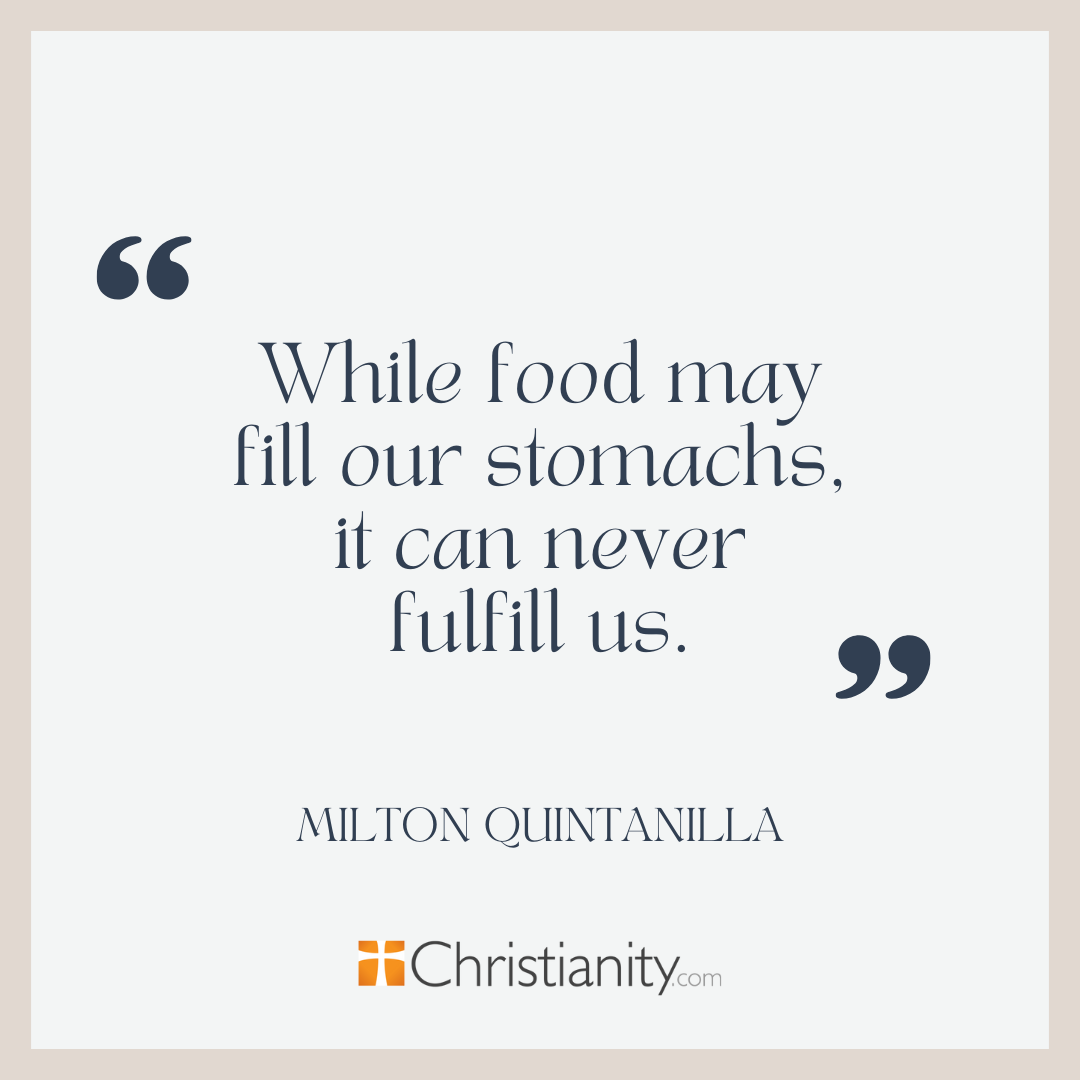Remember that time McDonald’s had snack wraps on its menu? Say no more. They are back due to nostalgic demand, which will make their customers, including yours truly, happy.
Just checking viral views on TikTok is evidence that there is a great need for comfort, speed, and familiarity. A clear example is thinking about what food you enjoyed growing up. The nostalgia feeling is reel because of the comfort it brought irrespective of everything else.
As a foodie at heart, I understand the feeling. It is said that a habit is made to meet an underlying need. While there is a physical desire for food, there is also an emotional one, as eating makes you feel full. At the same time, however, too much of one thing can be a bad thing, as one can overeat, especially junk food, and gain weight.
In the Scriptures, the author of Ecclesiastes, who is often attributed to King Solomon, discussed pursuing pleasures that lead to vanity, including laughter, wine, building houses, planting vineyards, and creating gardens and parks.
“I made myself gardens and parks, and planted all kinds of fruit trees in them. I made myself pools from which to water the forest of growing trees. I bought male and female slaves, and had slaves who were born in my house. I also had great possessions of herds and flocks, more than any who had been before me in Jerusalem. I also gathered silver and gold for myself and the treasure of kings and provinces. I got singers, both men and women, and many concubines, the delight of the sons of man,” -Ecc. 2:5-8
He also adds that despite surpassing all before him in Jerusalem, he found it meaningless.
“And whatever my eyes desired I did not keep from them. I kept my heart from no pleasure, for my heart found pleasure in all my toil, and this was my reward for all my toil. Then I considered all that my hands had done and the toil I had expended in doing it, and behold, all was vanity and a striving after wind, and there was nothing pto be gained under the sun.” vv.10-11
Returning to the topic at hand, although we can enjoy foods like snack wraps, the question Christians must ask is, “How can we recognize when harmless cravings reflect deeper spiritual hunger?”
Never Satisfied
In light of the text I just shared, we recognize that we are not satisfied with what we pursue, even the pleasures of life, because it is not meant to fulfill us. While food may fill our stomachs, it can never fulfill us. It is one way that God has blessed us, but it is not meant to complete us in any way. It is nothing more than instant gratification, like all the other pleasures in this world. But the issue we have is that when God is not in the picture, instant gratification is all that people chase after. During times of distress, people want to cope through whatever can quickly remedy their condition. In the case of food, there is what we know as stress eating, which is one way people tend to deal with difficult emotions through the pleasure of eating, especially junk food, which is addictive in itself because of the dopamine it provides. However, this only brings a temporary sense of satisfaction and increases the risk of overeating, which can result in health issues down the line, such as cancer, diabetes, and heart attacks.

To put it simply, what began as a harmless craving can very well result in self-harm as you seek but never find. Not only does it leave you unsatisfied, but it never saves. Further in Ecclesiastes, we must be aware that God has placed eternity in the human heart (Ecc. 3:11). Deep down, everyone has an awareness that there is something beyond themselves and that there is more to life than meets the eye. But the issue is that this world has rejected God, for all have turned away from Him. Although God has made His existence evident through creation, humanity has suppressed it with their own hearts and exchanged the truth for a lie.
Nevertheless, “God showed his love for us in this: we were still sinners Christ died for us (Romans 5:8). Christ, through His sacrifice, makes us right with God, in which we otherwise would have perished in our sins and faced God’s judgment. Moreover, He gives us eternal life, which is far more than just going to Heaven, but it’s about knowing God (John 17:3), which takes place in the here and now. It is through knowing Christ that we are truly satisfied.
Always Full
During the feeding of 5,000 with just five loaves and two fish, Jesus tells the crowd, “I am the bread of life. Whoever comes to me will never be hungry again. Whoever believes in me will never be thirsty” (John 6:35). Although Christ served the multitudes with earthly food, He pointed Himself as the “bread of life.” This is far beyond any bread this world has to offer, for Christ is the bread of life. Whenever Christians partake in communion, they eat of the bread, which represents His body, while the wine represents His blood. In addition to His self-identification as the bread of life, He offers this promise that those who come to Him and believe in Him will never be hungry or thirsty again. This life in Christ is a life that provides eternal satisfaction. That is far beyond what this world could offer because those needs will go unmet.
Therefore, we must recognize that Christ meets our deeper spiritual hunger. There is no other way it can be met, for there is no other like our Lord. Our Savior says, “I am the way, the truth, and the life, no one can come to the Father, except through me (John 14:6). Salvation is exclusive because no one else can save but Him. Therefore, if no one else can save but Jesus, then no one can satisfy but Jesus.
As famously stated by Augustine of Hippo, “You have made us for yourself, O Lord, and our heart is restless until it rests in you.” This quote says it all in terms of who we are in the Lord and that He provides true rest. We recognize that our lives are not our own, as we were not made for ourselves but for the Lord. After all, we are made in the image of God (Genesis 1:26); therefore, it is evident that our lives are made solely for Him. Therefore, that is where we can find true satisfaction for our hunger. So next time you think about that snack wrap, remember that Christ satisfies far beyond what it can provide. We must also be thankful that God has given us food and drink, for it is His blessing to us. To close, let us consider the words of the Apostle Paul to the church at Corinth, “So, whether you eat or drink, or whatever you do, do all to the glory of God,” (1 Cor. 10:31). When we do that, then we don’t have to seek out externals, including food, to attempt to satisfy spiritual hunger. Rather, we place it in its rightful perspective: that we do it to the glory of God, who has blessed us time and time again.
Photo Credit: Chat GPT



.jpg)

